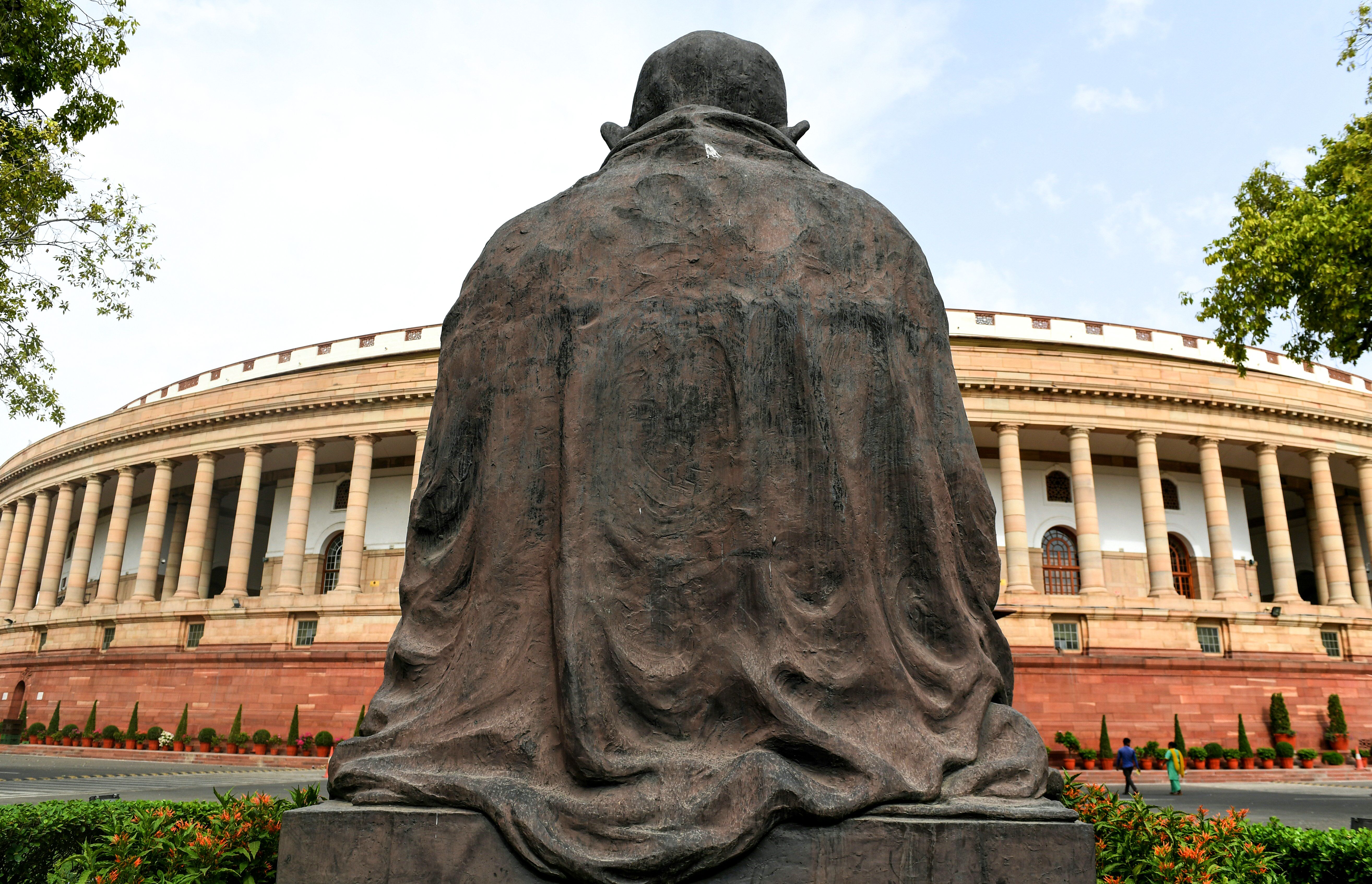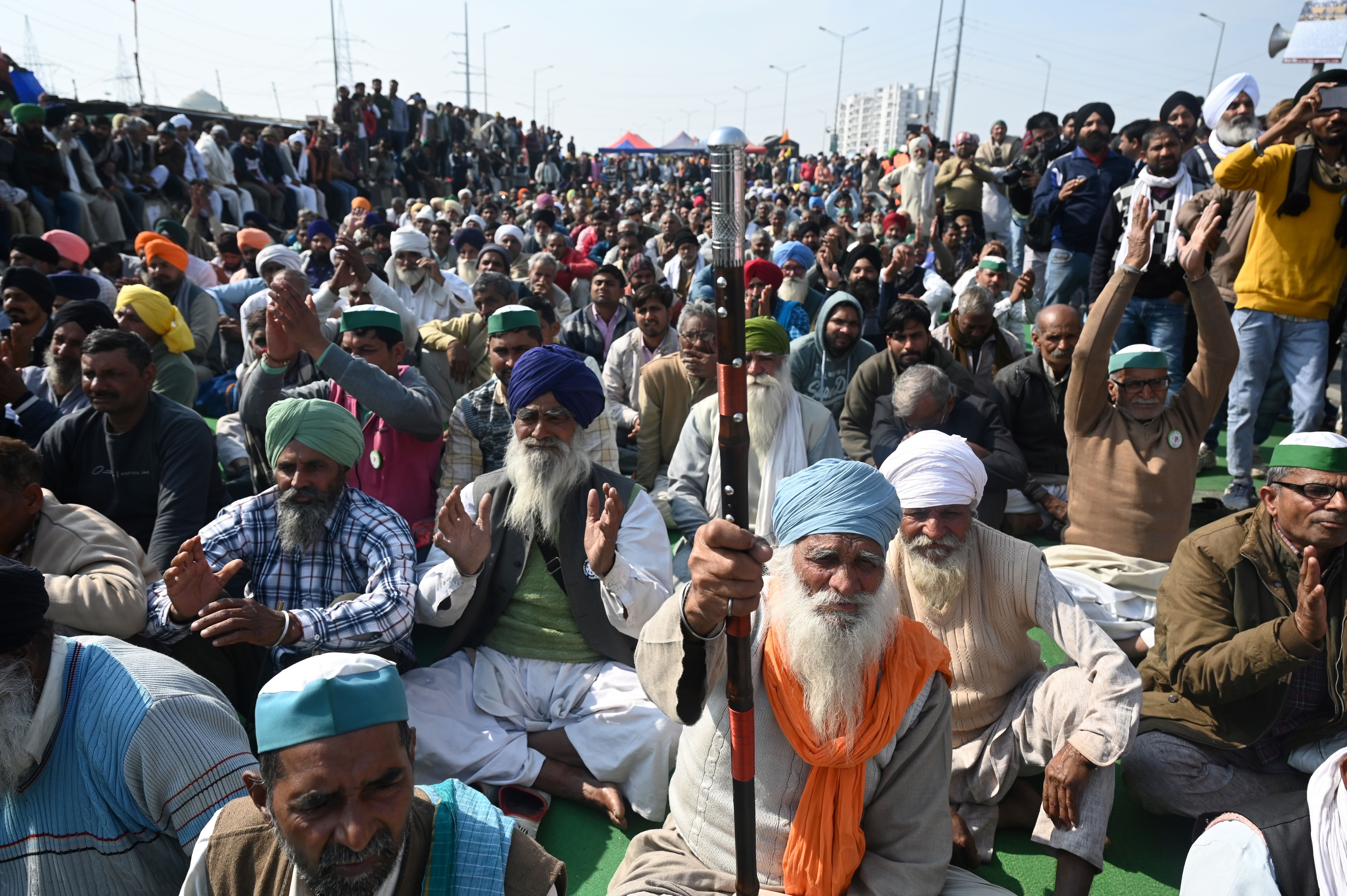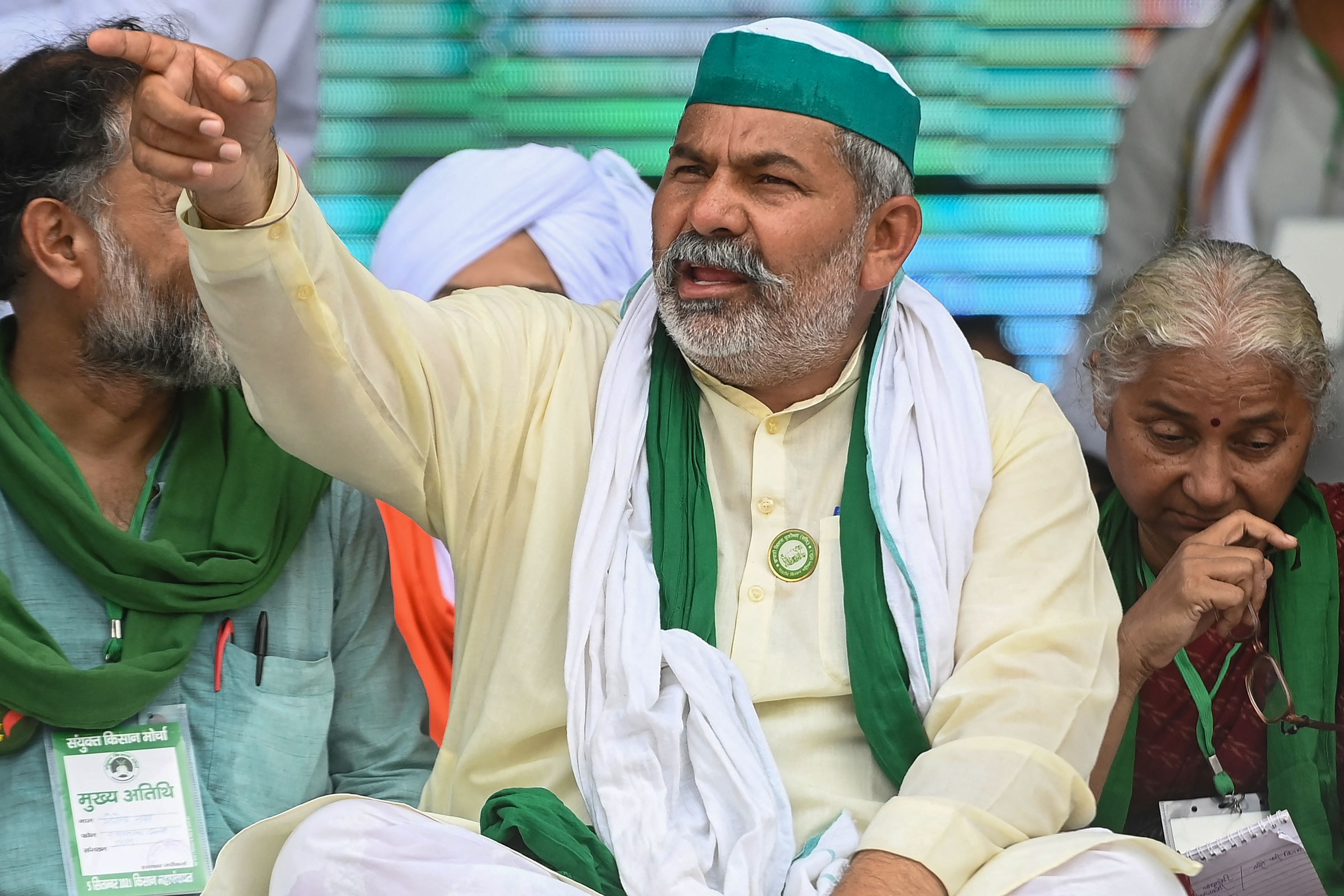How controversial farming reforms also reveal a lot about India’s parliament
The way reforms impacting Indian farmers were ‘bulldozed’ through parliament says a lot about India’s democracy, reports Namita Singh


It is now almost one year since farmers marched across northern India to the capital and began protesting against laws which, despite their huge implications for the future of agriculture in the world’s largest democracy, passed through parliament with minimal debate or scrutiny.
Despite their importance, the bills raced through the lower house (Lok Sabha) in just two days last September, during which the government refused requests to refer them to parliamentary committee for detailed scrutiny.
Exasperated by the process and declaring the proposals to be “anti-farmer”, a minister from a minor coalition party in the government resigned in protest when the bills were passed.
It was already afternoon on 20 September when the bills were put for a vote by the government in the Rajya Sabha, the upper house of parliament. The opposition parties insisted on a detailed discussion and demanded the voting be postponed to the next day. But the government refused.
In the chaotic scenes that followed, members from the opposition benches trooped into the well of the House, some raising slogans, others papers at deputy chairman Harivansh Narayan Singh, who was presiding.
Soon the House’s microphones were muted and the broadcast of the proceedings on state-owned Sansad TV stopped. Finally, the opposition demanded that the individual vote of each parliamentarian be recorded through electronic voting machine so they might be held accountable – but this too was refused, and the bill went to a voice vote, where the chair simply decides that the “ayes” outnumber the “noes”.
The reforms are seen as the biggest changes to Indian agriculture in the past six decades, dismantling a network of government-run wholesale markets and opening up the sector to privatisation. While the government says the reforms are necessary to modernise farming and boost production through private investment, farmers fear the new legislation will devastate their livelihood and earnings and force them to sell their crops to corporations at cheaper prices.
Like many of the farmers who have rallied against the laws since the Delhi sit-in protests began on 25 November last year, Uttar Pradesh-based farmer Anuj Singh said the issue is not just the impact the laws will have, but also the way they were passed by Narendra Modi’s BJP-led government – and the implications that has for the state of India’s democracy.
“The conditions through which the country was going... it was the first time in over 100 years that the world witnessed a pandemic,” Singh tells The Independent. “Nobody thought that the government would use this opportunity to pass such a law that exploits us. A law that was neither needed, nor demanded.”

Unlike in Westminster, India does not have a fixed parliamentary calendar. While the Indian constitution broadly stipulates a gap of no more than six months between two parliamentary sessions, it is convention to hold three short sessions per year. But even these are cut short.
All of the last four sessions of the Indian parliament have been wrapped up early.
During the monsoon session in July this year, the lower house was scheduled to work for six hours per day over 19 days. Yet according to data shared with The Independent by the political research institute PRS Legislative, it sat for only 21 per cent of its scheduled time. The entire session was mired by frequent adjournments and disruption.
The issue of parliament not meeting enough is far from unique to the Modi administration – during his first term from 2014, the hours when the Lok Sabha sat were actually up 20 per cent on his predecessor. But that was still 40 per cent lower than the average for all full-term governments. The data show a general decline in the number of hours that the Indian parliament meets, most notably since the era of coalition government began in 1977.
The Modi government is especially criticised for sending fewer bills to parliamentary committee for scrutiny. These committees are an essential forum where members of the ruling and opposition parties can meet without cameras to discuss laws in technical detail, explains Chakshu Roy, the head of legislative and civic engagement initiatives at PRS Legislative.
“You also have experts on the topic who come in and testify before the committee and put their stance on a particular law,” he says.
Sending bills to committee allows consensus, both political and technical, to be built on contentious issues before they are brought to parliament.
“The idea of passing a law in parliament is to have a bill that can be the best version of [that] law,” he explains. “That requires two things. One, a healthy political debate on a piece of legislation and second, detailed technical scrutiny.
“Such a technical scrutiny cannot happen on the floor of parliament as there may not be enough time,” he adds. “And that is when the parliamentary committees come in.”
But despite the repeated demands of the opposition, the farm laws – like about 88 per cent of the laws introduced during Modi’s second term so far – were not sent to parliamentary committees. It was only a little better in his first term, with about 25 per cent of the bills introduced in parliament going through the committee stage.
Contrast it with the two terms of his predecessor, Dr Manmohan Singh, who built a reputation as a thorough and technocratic leader, albeit with less than convincing oratory skills.
According to the data from PRS Legislative, during Singh’s first term from 2004 to 2009 the Congress-led government sent 60 per cent of its bills to parliamentary committees — rising to 71 per cent in his second term.
It should be noted that while the Modi government’s bills might not see much committee scrutiny, once they reach parliament they are considerably more likely to be subject to meaningful debate than bills were under Singh.
The proportion of bills passed within 30 minutes – an indicator that a law has faced almost no discussion at all on the floor of the parliament – was just 6 per cent in Modi’s first term compared to 26 per cent under the previous government.
Faizan Mustafa, a legal jurist, explains that the number of sitting hours has gone down dramatically since the late 1980s, in part because of the introduction of TV cameras.
Roy says the only way forward to ensure more time for debates is for parliament to increase the number of days it meets.
“Parliament needs to sit for more days so that not only can it hold the government accountable for its actions, but also so that it has adequate time so everyone can speak and everybody can put their voice [forward],” he says.
The quality of parliamentary debates has also been affected by a 1985 anti-defection law, argues Mustafa, which was supposed to bring stability to government by discouraging legislators from changing parties. “But the law goes a step further and prevents the lawmakers from going against the party line while debating an issue in the parliament. It does not exist in most of the well-functioning democracies.”
While both opposition and ruling parties have an equal stake in ensuring the functioning of parliament, Roy believes that when it is not working effectively, the government in power that benefits.
“It benefits in a way that ministers don’t have to answer questions about the functioning of their ministry. A law is passed quickly without a debate. So, the government’s legislative agenda gets accomplished. The opposition also suffers because it is not able to corner the ministers, or point out the improvements in the law that can be done.”
Derek O’ Brien, an MP in the Rajya Sabha (upper house) and senior figure in the second largest opposition party, the Trinamool Congress, defends the anti-defection law.
“My view is that you can express yourself freely within forums in the party,” he says. “You have to first convince your party, but once your party has taken a decision, and you have not been able to convince the majority of the party, then you have to fall in line. There is no place for prima donnas in parliament.
“If you disagree with the party, then leave the party. Go join another party and fight a fresh election.”
Nonetheless he was among the legislators who, when the government brought the farm laws, demanded electronic voting take place so that individual MPs’ votes were recorded.

Slamming the BJP for the way the bill was passed, O’ Brien says: “I had moved a resolution to send the bill for scrutiny. It is my right as a member, it is every MP’s right even to ask for a division [of electronic votes]. I was denied that right. Instead, the bill was bulldozed through the parliament.”
He claims that like many of the other important institutions of the country, the government has “weakened” India’s parliament. “The Modi government is working hard to move India from a parliamentary democracy to an elected autocracy,” he says.
The Independent reached out to the BJP as well as a number of sitting government MPs for comment on the functioning of parliament, but none agreed to talk.
Rakesh Tikait, national spokesperson for the Bharatiya Kisan Union farmer’s association which is spearheading the protests across the country, labelled the passage of the bills as “illegal”.
“They have made a mockery of the constitution drafted by BR Ambedkar [one of India’s founding fathers],” he says. “The opposition and their inputs are not valued. It seems like their opinion does not carry weight while the government is being reluctant and rigid in their ways.”
A year into the protest, Tikait speaks to The Independent while sitting on a charpoy under a flyover at the Ghazipur border to Delhi.
He says that “about 750 farmers have been martyred” because of the laws. On being asked whom he holds responsible for those deaths, he replies unequivocally: “The Modi government.”






Join our commenting forum
Join thought-provoking conversations, follow other Independent readers and see their replies
Comments